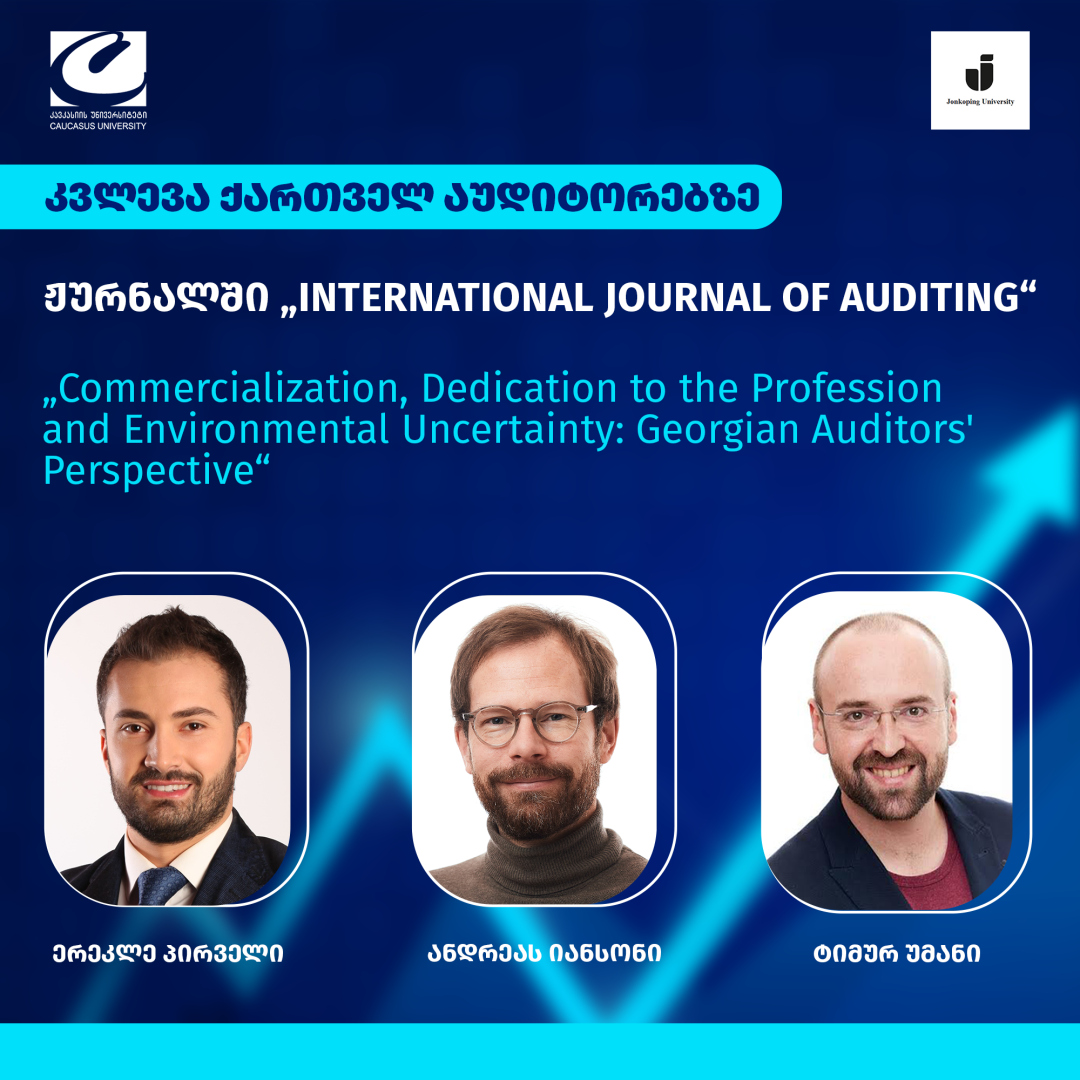დაიბეჭდა კავკასიის ბიზნესის სკოლის პროფესორის, ერეკლე პირველის, პუბლიკაცია ბრიტანულ “A” დონის სამეცნიერო ჟურნალში International Journal of Auditing (Wiley, Scopus Q1, ABDC “A”).
რა უფრო მნიშვნელოვანია ქართველი აუდიტორებისთვის – კომერციული მიზნები თუ პროფესიული ეთიკა?
სტატია – “Commercialization, Dedication to the Profession and Environmental Uncertainty: Georgian Auditors' Perspective” – იკვლევს ქართველი აუდიტორების პროფესიულ ღირებულებებსა და კომერციალიზაციის დონეს შორის კავშირს, განსაკუთრებით გაურკვეველი გარემო პირობების კონტექსტში. ეს არის პირველი მასშტაბური კვლევა, რომელიც ფოკუსირებულია საქართველოში მოღვაწე სერტიფიცირებული აუდიტორების ქცევით მახასიათებლებზე.
კვლევა განხორციელდა კავკასიის უნივერსიტეტისა და შვედეთის იონქოპინგის უნივერსიტეტის პროფესორების თანამშრომლობით. პროექტი დაფინანსდა შოთა რუსთაველის ეროვნული სამეცნიერო ფონდის ახალგაზრდული საგრანტო პროგრამის ფარგლებში და ოთხი წლის განმავლობაში ხორციელდებოდა.
სტატიის სრულ ვერსიასთან წვდომა შესაძლებელია ბმულზე.
აბსტრაქტი:
This paper examines the association between commercialization in the auditing profession and auditors' dedication to the profession. The paper further explores the contingent role of environmental uncertainty in this relationship.
We hypothesize that these relations are contextually situated and that in a transitional economy like Georgia, commercialization is positively associated with auditors' dedication to the profession. We furthermore hypothesize that under a high perceived level of environmental uncertainty, commercialization instead becomes negatively associated with auditors' dedication to the profession. Our study relies on the responses of 235 certified Georgian auditors.
In line with our expectations, our findings indicate that increasing commercialization in the auditing profession is positively associated with increasing dedication to the profession. We further find that increasing environmental uncertainty has a negative moderating effect on the relationship between commercialization in the auditing profession and auditors' dedication to the profession, driven mainly by existential uncertainty regarding the survival of the auditing firm.
Exploring these relationships, our study contributes to an emerging discussion on the role of commercialization in professionals' perceptions of and attachment to their profession. Our study further highlights the role of environmental uncertainty in affecting the work performed by auditors in emerging economies.

